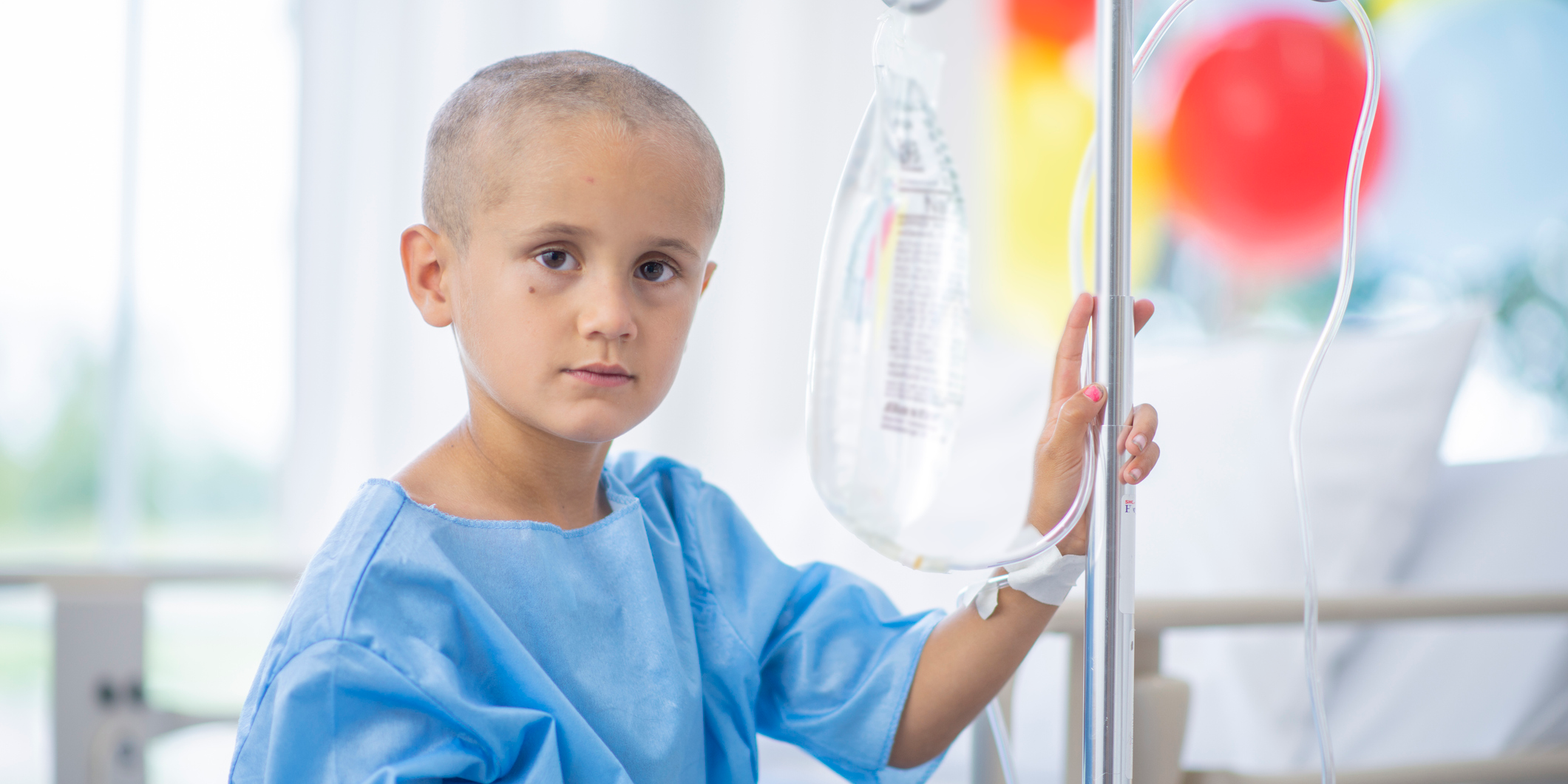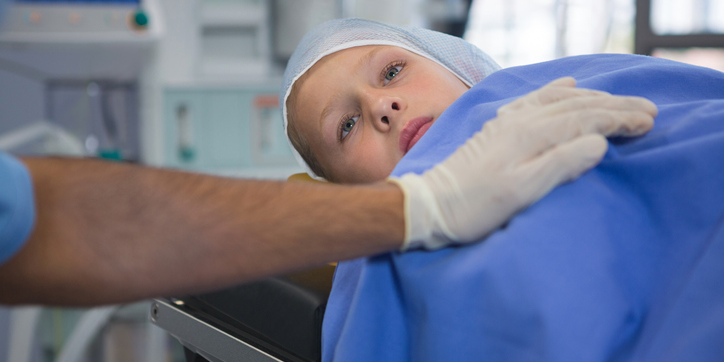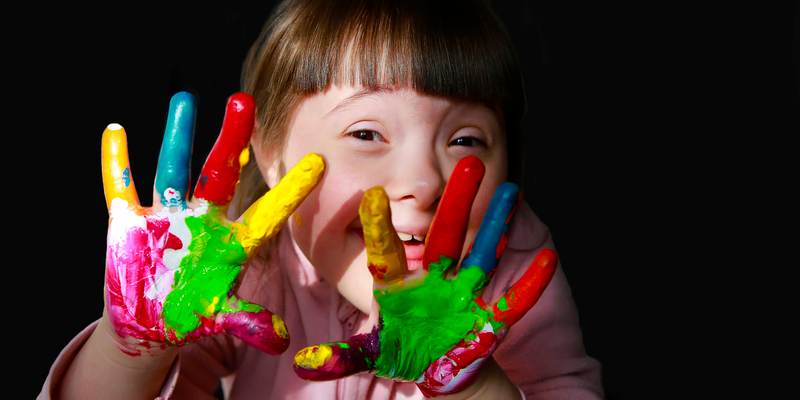2022/23 : At Necker Hospital, art therapy for hospitalized children awaiting a bone marrow transplant
In France, each year, 250 children with cancer benefit from a bone marrow transplant. Bone marrow transplant is used in cases of serious blood diseases (bone marrow failure, myeloma, lymphoma, leukemia) or hereditary diseases (sickle cell disease, thalassemia). For both parents and children (very sensitive to parental stress), the announcement of the transplant is a moment of anxiety.
Because the risks are never trivial. Because the child's life prognosis is sometimes at stake. Because health conditions require the child to be completely isolated.

For the child, it is a radical change of environment. He is in a sterile room from which he cannot leave. Visits are limited (prohibited to brothers and sisters) and subject to strict rules. The appearance of relatives disappears under the gown, hat, mask and sometimes gloves. For the transplant, he goes into a room under laminar flow, even better protected.
After the operation, he stays a few days in an intensive care unit, then he returns to the sterile room where he stays at least 3 months for rehabilitation. During this period, the child is under continuous medical surveillance in a stressful context (frequent entry and exit of caregivers, alarm beeps, noise from the monitoring, the respirator, the infusion pump, etc.).

For some children confined to their beds, this physical immobility leads to psychological immobility and an inability to think. They can no longer plan ahead, to have short or long-term plans. For others, this immobility disrupts their daily life benchmarks. It leads to an effervescence of thought with ideas that go round and round and generate worry or even anticipatory anxiety. In this context, specific support for the child is recommended.
The project consists of supporting the transplanted child with art therapy. Art therapy is a care practice recognized by the WHO. Through a creative process (painting, collage, doodling, modeling, photography, writing, stories, etc.) the sick child is provided with energy, vitality and the opportunity to express what he has deep inside him.
By stimulating his inner energy and personal resources, the effect of treatments is maximized. By allowing him to maintain his curiosity and imagination, he is helped to better manage his emotions. He continues to grow and build himself despite (or with) the disease.

This reduces the child's anxiety. It is a reconnection with the richness of his life. A happy break in his treatment days.
Les Médecins de l'Imaginaire (this NGO exists since 2003) offers art therapy sessions following intervention protocols adapted to the specific problems of hospitalization. For a better flow of support, qualified art therapists regularly discuss the child's situation with psychologists and nurses (fatigue? pain? presence of parents? etc.). They thus build a therapeutic alliance with the child, but also with the parents, a fundamental prerequisite for the child to be able to get involved.
La Fondation La Petite Etoile participates in this project by financing the interventions of art therapists. Art therapists follow the child for at least 3 months, but it is not uncommon to follow a child for 5 to 6 months (especially when there are complications related to the risk of rejection). Sometimes the support continues in the intensive care unit and/or until the last moments of life.
Place of intervention: NECKER Hospital Immuno-Hematology and Rheumatology Unit (UIHR)
Total budget : € 17,225 (30 children)
Co-participants : Fondation La Petite Etoile, Médecins de l'Imaginaire
Funding provided by La Fondation La Petite Etoile: € 6,000
End of the project : July 2023
In France, each year, 250 children with cancer benefit from a bone marrow transplant. Bone marrow transplant is used in cases of serious blood diseases (bone marrow failure, myeloma, lymphoma, leukemia) or hereditary diseases (sickle cell disease, thalassemia). For both parents and children (very sensitive to parental stress), the announcement of the transplant is a moment of anxiety.
Because the risks are never trivial. Because the child's life prognosis is sometimes at stake. Because health conditions require the child to be completely isolated.

For the child, it is a radical change of environment. He is in a sterile room from which he cannot leave. Visits are limited (prohibited to brothers and sisters) and subject to strict rules. The appearance of relatives disappears under the gown, hat, mask and sometimes gloves. For the transplant, he goes into a room under laminar flow, even better protected.
After the operation, he stays a few days in an intensive care unit, then he returns to the sterile room where he stays at least 3 months for rehabilitation. During this period, the child is under continuous medical surveillance in a stressful context (frequent entry and exit of caregivers, alarm beeps, noise from the monitoring, the respirator, the infusion pump, etc.).

For some children confined to their beds, this physical immobility leads to psychological immobility and an inability to think. They can no longer plan ahead, to have short or long-term plans. For others, this immobility disrupts their daily life benchmarks. It leads to an effervescence of thought with ideas that go round and round and generate worry or even anticipatory anxiety. In this context, specific support for the child is recommended.
The project consists of supporting the transplanted child with art therapy. Art therapy is a care practice recognized by the WHO. Through a creative process (painting, collage, doodling, modeling, photography, writing, stories, etc.) the sick child is provided with energy, vitality and the opportunity to express what he has deep inside him.
By stimulating his inner energy and personal resources, the effect of treatments is maximized. By allowing him to maintain his curiosity and imagination, he is helped to better manage his emotions. He continues to grow and build himself despite (or with) the disease.

This reduces the child's anxiety. It is a reconnection with the richness of his life. A happy break in his treatment days.
Les Médecins de l'Imaginaire (this NGO exists since 2003) offers art therapy sessions following intervention protocols adapted to the specific problems of hospitalization. For a better flow of support, qualified art therapists regularly discuss the child's situation with psychologists and nurses (fatigue? pain? presence of parents? etc.). They thus build a therapeutic alliance with the child, but also with the parents, a fundamental prerequisite for the child to be able to get involved.
La Fondation La Petite Etoile participates in this project by financing the interventions of art therapists. Art therapists follow the child for at least 3 months, but it is not uncommon to follow a child for 5 to 6 months (especially when there are complications related to the risk of rejection). Sometimes the support continues in the intensive care unit and/or until the last moments of life.
Place of intervention: NECKER Hospital Immuno-Hematology and Rheumatology Unit (UIHR)
Total budget : € 17,225 (30 children)
Co-participants : Fondation La Petite Etoile, Médecins de l'Imaginaire
Funding provided by La Fondation La Petite Etoile: € 6,000
End of the project : July 2023